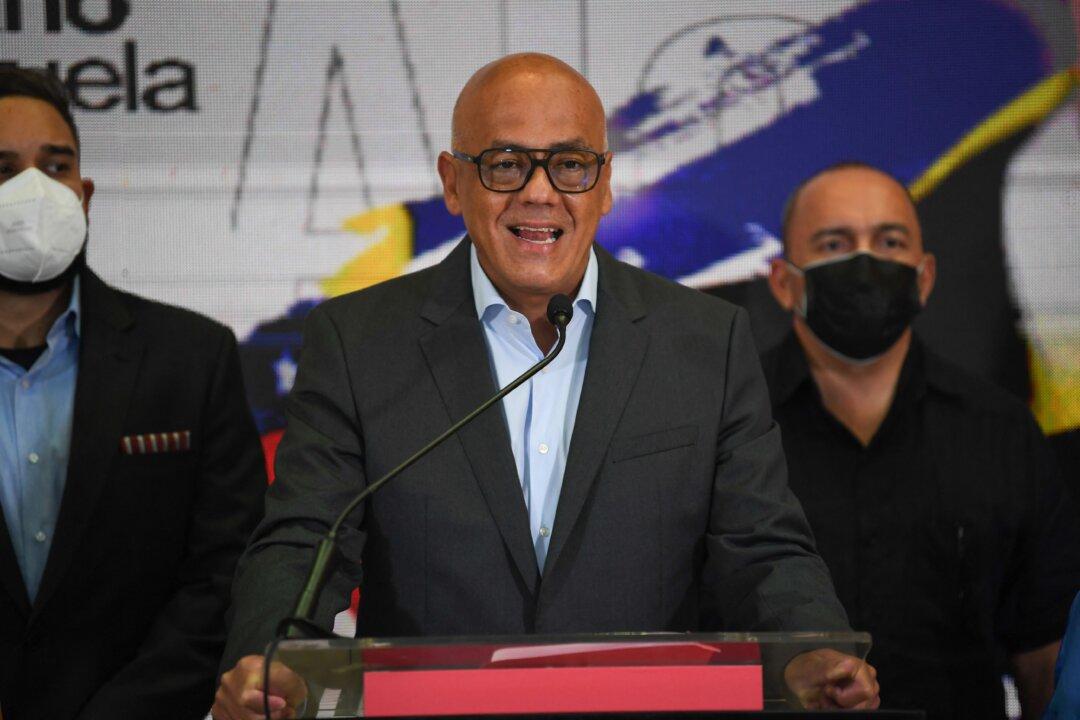CARACAS/PRAIA—Venezuela on Oct. 16 said it would suspend negotiations with the opposition that were set to resume this weekend.
The announcement was made by Socialist Party legislator Jorge Rodriguez, who heads the Maduro regime’s negotiating team. Rodriguez said the Venezuelan government wouldn’t attend the talks set to begin on Oct. 17 after Cape Verde extradited Colombian businessman Alex Saab, a Venezuelan envoy who is close to Venezuelan leader Nicolás Maduro, to the United States on money laundering charges.





